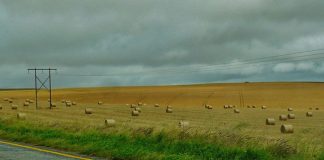This is Agri Wes-Cape president Cornie Swart’s take on the ongoing violent protests in De Doorns and elsewhere in the Western Cape.
“We can call it a disaster. People’s lives are at stake for political gain,” Swart told a special media conference at Agri SA’s headquarters in Centurion in Gauteng.
“This is no longer a farm worker minimum wage thing,” he said and went on to describe the scenes playing out on farms in the Western Cape as the “worst violence we’ve ever seen.”
What started a few weeks ago as a wage dispute among workers in the De Doorns area has spread to other table grape and fruit producing areas of the province.
The minimum wage is established yearly in March by the Department of Labour in consultation with the different sectors. Agri SA president Johannes Möller said raising the minimum wage of farm workers by R10 per day would cost agriculture in South Africa an additional R1,5 billion per year.
He said agriculture in South Africa is four times more labour intensive than the country’s competitors, due to the need for employment.
“In the table grape industry labour accounts for 45% of a producer’s costs,” said Möller.
He said in agriculture the return on capital investment is between 2% and 4%/year, and much higher wage demands will have a long-term structural impact on agriculture.
“The minister [of agriculture] is with Cosatu today. We would have preferred to have her here. It gives an insight into alliances,” said Möller.
Earlier Cosatu called for the protests in the Western Cape to be halted for two weeks for the minimum wage to be reviewed. But Möller said it’s impossible to review the minimum wage in just two weeks.
“The only short-term solution would be a wage subsidy from government,” he said. “Nobody budgeted for higher wages to be implemented in the middle of the production season.” – Niel Saayman











